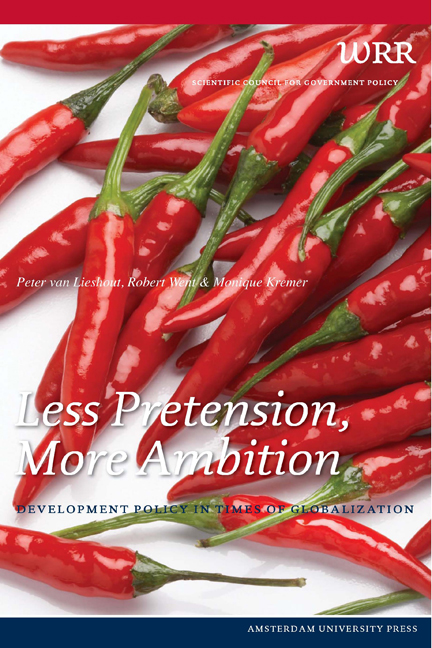Book contents
9 - Conclusion
Published online by Cambridge University Press: 14 January 2021
Summary
Development aid is the subject of heavy debate. In many ways the world has improved immensely over the past sixty years. However, the question is increasingly being raised as to what contribution aid has made to this development. Progress has primarily become apparent over the last few decades. In the past twenty-five years, life expectancy in all developing countries taken together has risen by ten years, and the percentage of children attending school has doubled. Poverty around the globe has also halved, to a quarter of the world's population. This success, however, has primarily been achieved in Asia, with China alone accounting for three quarters of the decrease. In Sub-Saharan Africa, real incomes have doubled over the past twenty-five years, but the percentage of people living on an income under the poverty line has not fallen. Can these successes be attributed to development aid, or should the lack of success be blamed on aid? The answer to both questions is: ‘No’.
Development aid definitely contributed to the massive leaps forward made in Asia, from the economic support to Taiwan and South Korea in the 1950s to the aid for agricultural improvement provided to India in the 1970s. However, these contributions were limited – all manner of other factors were important. Similarly, the lack of success – in particular in Sub-Saharan Africa – cannot unequivocally be traced back to the failure of aid. A lot of aid, particularly in the 1990s, had geopolitical objectives. Even today, much aid primarily aims to improve the immediate living conditions of the poor instead of bringing about structural development. Moreover, economic, political and social structures in African countries are of a very different order. These countries still clearly reveal the traces of colonialism, with their artificial borders and institutions that are barely rooted in society. Strong governments with a clear view of the future development of their country are rare in Africa, in sharp contrast to Asia.
Simple analogies between development paths in various parts of the world soon become misleading. For example, a parallel between development aid and the Marshall Plan is inaccurate because the latter started out as an attempt to rebuild Europe after the war. It was essentially a matter of reviving a formerly healthy patient, while many of the countries which need aid now have never had a healthy market economy or a functioning state system.
- Type
- Chapter
- Information
- Less Pretension, More AmbitionDevelopment Policy in Times of Globalization, pp. 259 - 274Publisher: Amsterdam University PressPrint publication year: 2010



